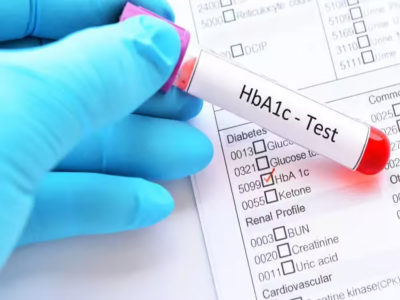As the world observes World Diabetes Day on November 14, the global issue of diabetes seizes attention. The disease impacts a staggering 422 million individuals, including an alarming 15,000 young people, the world over. The World Health Organisation (WHO) estimates that 1.5 million lives are lost every year due to this chronic condition and emphasises the need for viable remedies.
Diabetes, marked by the body’s inadequate production of insulin resulting in disrupted glucose levels, remains a chronic condition with widespread implications.
Dr Tariq Padder, an endocrinologist, sheds light on the complexities of diabetes, defining it as “Diabetes Mellitus, a disease encompassing a group of common metabolic disorders sharing the phenotype of hyperglycemia”.
Dr Iqbal Ahmad Kar, a senior medical officer, told Patriot that diabetes is a metabolic disorder rooted in elevated blood sugar levels. He emphasised that this metabolic disturbance can lead to severe complications, primarily impacting vital organs such as the kidneys, heart, and liver.
Attributing the surge in diabetes to lifestyle disorders and poor dietary choices, Dr Kar outlined key symptoms, including persistent fatigue, excessive thirst, and frequent nighttime urination.
In the pursuit of comprehensive treatments, Ayurveda, an ancient Indian medical system, has emerged as a promising avenue. Dr Kar advocates for the integration of Ayurvedic herbs into the daily regimen to manage diabetes effectively.
Several herbs stand out for their potential benefits
Fenugreek Seeds
Seeds of fenugreek, scientifically known as Trigonella foenum-graecum, are praised for their fibre content and essential chemicals. According to the National Institute of Health, these properties aid in reducing insulin resistance, making them a valuable addition to the diet of diabetic patients.
Neem Leaves
Dr Kar recommends the bitter leaves of neem as an effective remedy for diabetes, citing their potential to lower blood sugar levels. Neem leaves could be consumed in the form of juices and smoothies, offering a palatable way to harness their medicinal properties.
Karela (Bitter Gourd)
Bitter melon acts as an effective agent against diabetes, containing chemicals that mimic insulin, thereby reducing blood sugar levels. Integrating bitter melon into one’s diet can contribute to better diabetes management.
Jamun
Acknowledged by the National Institute of Health as an excellent agent for addressing metabolic disorders, jamun, or Indian blackberry, proves effective when consumed in the form of leaves and fruit extracts.





